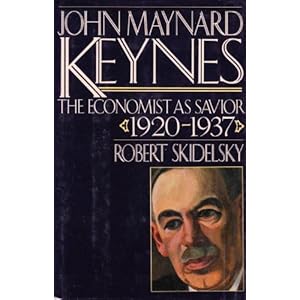This article was published in The Malta Independent on Sunday - 1st January 2012
At the end of each year a regular columnist should look back and acknowledge the things he got right or wrong.
These comments in my column of 16th January 2011 about the Tunisian revolution make me both proud and blush.
Could the Tunisian revolution be the beginning of a more widespread movement searching for true freedom in other North African states? Neighbouring Algeria is particularly vulnerable, but other states are not immune.
I got the result right by but the direction wrong. Instead of westwards the revolution spread eastward!
I am pleased with myself that I was out early with a firm opinion that the Libyan regime was on the way out. On 13th March 2011, before the UN vote approving NATO intervention I said:
The situation demands an immediate ceasefire and negotiations between the Gaddafi regime and representatives of the uprising to come up with a peaceful solution in the interest of the Libyan people. The regime has to do some thorough soul searching and hopefully conclude that a 41-year legacy, which sees the country’s resources spent in self-protection against its own citizens, is a dead end. Even if the regime prevails, it will be a pyrrhic victory, surviving with more blood on its hands and shamed by the entire international community.
Two weeks later of 27th March I was even more direct:
Whilst it is unlikely that lasting stability could come about without regime change, this cannot be the goal of the UN-enabled forces. Such decisions pertain to the Libyan people. If the insurgents are determined to liberate Libya and convert their country into a modern democracy that commands respect from its neighbours and world institutions, they must work hard for it rather than expect the world to deliver it to them on a platter.
Having neutralised the regime’s fire power, the UN-enabled forces should retreat and work on political initiatives, including the recognition of the Benghazi government as the legitimate interim representative of the people. Following such recognition, the new government will need to be helped with Bosnia-type training and equipping to give them a fair chance of victory over the Gaddafi regime, which has delegitimised itself through the use of military force against its own people.
I am also quite happy with myself about the contribution I made in favour of divorce in the referendum as embodied in this quote from my contribution of 8th May 2011:
Strange as it may sound, by using various agencies to mount a negative campaign against the introduction of divorce, the Church is actually allying itself with such egoistic animal instincts that are against the introduction of divorce for anything but holy and spiritual reasons.
The Church should be against divorce but not against its introduction. The Church has a duty to guide its faithful to live their religion and to abstain from divorce as a matter of personal choice and lifestyle, without imposing it on others who are not members of the Church or who make a personal choice not to live their religion.
Some comments I made make me blush and reflect bad judgement. Take this quote from my contribution of 10th April 2011 about the Euro crisis and Jean Claude Trichet, the then President of the European Central Bank:
(Trichet) even engineered temporary support for sovereign bonds to keep yields within acceptable boundaries until the politicians build permanent structures more appropriate for such role. Doing this against the opposition of the German boy on the Board and at the same time being courageous enough to start raising interest rates when other central banks would not even dare think about it, shows Trichet’s mettle in protecting the credibility of the ECB to underpin the continued mooring of inflation expectations at low levels.
Events proved that Trichet was not aggressive enough in loosening monetary policy and under-estimated the seriousness of the Euro crisis. The crisis in fact is still rambling on dangerously. Raising interest rates (twice) in the midst of a liquidity crisis was a grave error of judgement which his successor had to reverse as soon as he moved into position. The ECB under Trichet has not been forceful enough to make politicians do what’s right rather what’s popular. I gave Trichet a rating higher than he deserved.
However nothing makes me angry at myself more than what I wrote on 19th June 2011 about whether Maltese taxpayers funds should be used to bail-out Greece:
I would say that Maltese tax money would have to be used to bailout Greece because in the process we would be bailing out the whole European financial system and the general EU economy which we need in good health to maintain our exports and our tourism. However the bailout must not be temporary patchwork, just kicking the can down the road till it explodes in the face of successor governments. The bailout must be a true solution (involving)……acceptance of the austerity measures through a national government or the conduct of referendum or fresh elections whereby the government seeks a popular mandate for acceptance of the austerity package or for the stark alternative of exiting the euro. It is inconceivable that if Greece were to default it could stay in the euro.
Anything short of this would be wasting our scarce resources.
I feel much better about reversing my opinion publicly in my column of 14th August 2011:
Some weeks ago I was in favour of our contributing, as a still solid link in the EU chain, our fair share for the Greek bailout. Given developments since, I am changing my opinion. Unless EU leaders get themselves ahead of the markets, piecemeal bailouts will ultimately mean there will be more members in the rescue ward than rescuer members. Contagion will make sure that is a given.
Unfortunately EU leaders still do not get it and continue to plod from one crisis meeting to another without providing real long term solutions which have to go beyond imposing austerity measures on weak countries and must include tangible show of solidarity, a European Marshall Plan, to get ahead of the markets and base redemption on economic growth as much as on austerity.
With national elections on the horizon the leaders of German and France are gripped by conflicting loyalties between the narrow views of their domestic audience, from whom they get their democratic legitimacy, and the wider needs of the whole EU. This does not augur for anything but continuing to kick the can down the road. The problems come at the end of the road when there is nowhere else where to kick the can.
The best I can wish you for 2012 is that European leaders will get above themselves and take the bold decisions that are needed to save the Euro, unpalatable as such decisions may be for their domestic audience, and by consequence probably also for their own political legacy. The alternative could be too hard to contemplate.









